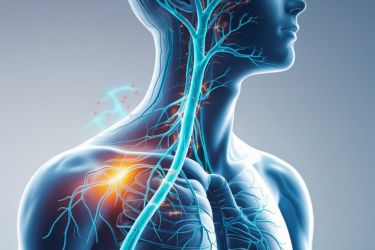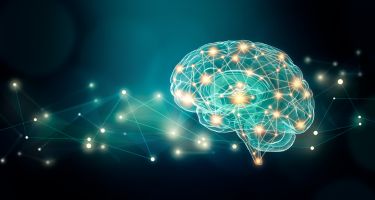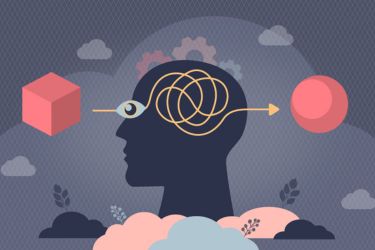Music has long been recognised as a powerful tool in enhancing our cognitive skills. Research shows that music not only stimulates brain development but also improves various cognitive functions. This powerful connection between music and our mental processes can lead to advancements in learning, memory, and even emotional well-being.
As we explore how music interacts with our brain, we uncover its role in rehabilitation for neurological disorders and its effects on mental health. Listening to or participating in musical activities can foster creativity, boost memory, and improve our overall psychological state. By incorporating music into our daily lives, we can unlock its potential to transform our cognitive capabilities.
Key Takeaways
- Music enhances cognitive skills and overall brain development.
- Participating in musical activities can improve mental health and emotional well-being.
- Music can aid in rehabilitation for neurological disorders and boost learning performance.
The Science of Music and the Brain
Music engages our brain in complex ways. Through a mix of neurological mechanisms, neuroplasticity, and brain area activation, music influences how we perceive and process sound, emotion, and memory.
Neurological Mechanisms Behind Music Perception
Our brain interprets music using various neurological pathways. Research shows that music perception involves both the auditory cortex and several other brain regions. The auditory cortex is crucial for processing sound frequencies and rhythms.
When we listen to music, neural signals are sent to areas responsible for emotion and memory, such as the limbic system. This system helps us respond emotionally to music, creating connections between sounds and feelings. Neuroimaging studies reveal specific brain areas activated during music listening and playing.
Neuroplasticity and Music
Neuroplasticity is our brain's ability to change and adapt through experience. Engaging with music significantly stimulates this process. Research demonstrates that learning an instrument or participating in music therapy can lead to structural changes in the brain.
These changes often occur in areas related to memory, attention, and motor skills. Regular musical practice can increase grey matter volume in the brain, enhancing our cognitive functions. This reveals the potential of music to improve mental agility, especially in those recovering from brain injuries.
Music and Brain Area Activation
Different types of music activate various brain areas. For instance, listening to upbeat, rhythmic music can stimulate the motor cortex, which is tied to movement. This is why we often feel compelled to dance or tap our feet.
Additionally, emotional responses to music are linked to the limbic system. This region controls feelings of pleasure and reward. Neuroimaging has shown that even imagining music activates these areas, highlighting how deeply music is woven into our emotional fabric. Engaging with music not only entertains but also enriches our brains.
Cognitive Enhancement Through Music
Music offers significant advantages for enhancing cognitive skills. Through music education and training, we can improve our cognitive development, support executive function, and enhance memory capabilities. Each of these aspects plays a vital role in our overall mental performance.
Music Education and Cognitive Development
Participation in music education leads to notable improvements in cognitive development. Studies show that children who engage in musical activities often demonstrate higher verbal skills and mathematical proficiency.
Learning music involves complex skills such as pattern recognition and auditory processing, which stimulate brain areas associated with other forms of learning. We can also see this reflected in enhanced concentration and critical thinking abilities.
Additionally, music education can foster creativity. This creativity translates into improved problem-solving skills that benefit us in academic and everyday situations.
Music Training and Executive Function
Musical training is closely linked to advancements in executive function, which includes skills like decision-making, focus, and self-control. As we learn to play an instrument or sing, we engage multiple brain regions simultaneously.
This engagement aids in strengthening neural connections. Research indicates that musicians often perform better on tasks requiring mental flexibility and working memory.
For example, the process of reading music demands immediate responses and adjustments, directly enhancing our cognitive agility. Such skills are crucial not only in music but also in academic and professional settings.
Memory Enhancement Via Musical Training
Musical training has been shown to improve memory encoding and retrieval. Regular engagement with music enhances verbal memory, making it easier for us to remember information.
We often find that music acts as a mnemonic device, where melodies can help us recall facts and lists. Additionally, musicians typically exhibit superior memory retention compared to non-musicians.
By focusing on rhythmic patterns and harmonies, we enhance our ability to organise and store information effectively. This not only aids in learning new material but also reinforces existing knowledge, solidifying our cognitive capabilities.
Music Therapy and Rehabilitation
Music therapy plays a significant role in rehabilitation by enhancing cognitive skills, aiding mental health, and facilitating recovery in various patient groups. We will explore specific music-based therapies that help individuals recover from mental health issues, stroke, and the challenges faced by older adults.
Music-Based Therapies for Mental Health
Music therapy can effectively address mental health challenges. Through active engagement in music, we tap into emotional expression and social connection.
Key approaches include:
- Active Music Making: Involves playing instruments or singing, which can reduce anxiety and improve mood.
- Receptive Music Therapy: Listening to music helps create calming environments, reducing stress and promoting relaxation.
Research shows that individuals participating in music therapy report higher levels of emotional well-being and lower instances of depression. The structured yet creative nature of music therapy provides an outlet for self-expression, assisting individuals in processing their feelings.
Rhythmic Auditory Stimulation in Stroke Recovery
Rhythmic Auditory Stimulation (RAS) is a specific music therapy technique tailored for stroke rehabilitation. This method uses rhythmic cues to encourage movement and improve motor skills. By synchronising movements to music, patients find it easier to regain mobility.
Benefits of RAS include:
- Enhanced Motor Function: The rhythmic element aids in coordinating muscle movements.
- Increased Motivation: Patients often feel more inclined to engage in exercises set to music.
Studies indicate that RAS can effectively improve gait and overall functionality in stroke survivors, making rehabilitation more engaging and enjoyable.
Music Intervention for Older Adults
As we age, cognitive decline can often pose significant challenges. Music intervention offers a valuable tool for improving cognitive skills and enhancing the quality of life for older adults.
This approach focuses on:
- Memory Enhancement: Familiar music can trigger memories, which is particularly beneficial for individuals with dementia.
- Social Interaction: Group music therapy encourages socialisation, combatting feelings of loneliness.
Research supports that older adults who participate in music interventions demonstrate improved cognitive function and emotional health. These activities build connections and promote mental engagement, making them essential for holistic care.
Effects of Music on Psychological and Emotional Well-Being
We can see that music plays a significant role in shaping our mental health and emotional states. Its influence on reducing anxiety and stress, uplifting our mood, and enhancing our daily well-being is well-documented.
Reducing Anxiety and Stress Through Music
Listening to music can significantly lessen feelings of anxiety and stress. Studies show that specific genres, such as classical music, are particularly effective. They can lower heart rates and reduce cortisol, the stress hormone.
In therapeutic settings, music therapy has been proven to help individuals manage anxiety disorders. For instance, calming melodies can create a sense of safety, inviting relaxation. This process allows us to regain control over our psychological status, leading to improved emotional well-being.
The Emotional Impact of Music on Mood
Music also has a profound emotional impact on our mood. It can elevate feelings of joy and happiness or evoke sadness, depending on the selection. Fast-paced, upbeat tracks tend to enhance mood and energise us, while slower melodies can facilitate reflection and emotional expression.
Research has shown that engaging with music regularly can actively combat symptoms of depression. When we listen to songs that resonate with our feelings, we can experience a cathartic release. This emotional engagement not only helps us process our thoughts but also fosters a sense of connection to the music and the emotions it conveys.
Music Listening and Well-Being in Daily Life
Incorporating music into our daily lives can significantly enhance our overall well-being. Whether we’re working, exercising, or relaxing, music can create a positive atmosphere.
For example, playing music during workouts can boost our motivation and endurance, making exercise more enjoyable. Additionally, many of us find that creating curated playlists for different activities helps maintain our mental focus and emotional balance throughout the day.
Furthermore, utilising music as a tool for relaxation can help us unwind after a long day. This practice reduces stress and fosters a sense of peace, contributing to our overall emotional health.
The Role of Music in Learning and Academic Performance
Music plays a vital role in enhancing learning and academic performance. Through music lessons, students can experience improvements in cognitive skills that significantly benefit their education. We will explore how music lessons can enhance IQ, the relationship between music and reading skills, and the impact of music on spatial task performance.
Music Lessons and Enhanced IQ
Research suggests that engaging in music lessons can lead to higher IQ levels. Studies show that children who participate in music education tend to score better on standardised tests compared to those without musical training.
This enhancement in IQ may be due to the cognitive demands of learning an instrument, which includes reading music and coordinating movements. These activities promote better memory, attention, and problem-solving skills.
As students learn complex musical concepts, they develop critical thinking abilities. This mental workout can translate into improved academic success across various subjects, not just music.
The Relationship Between Music and Reading Skills
Music education is closely linked to improved reading skills. Learning music helps develop phonological awareness, which is the ability to recognise and manipulate sounds in language. This skill is essential for reading and writing proficiency.
Children who engage in music lessons often show enhanced language development. They become more adept at recognising rhythmic patterns, which helps in decoding words while reading.
Additionally, music training can improve vocabulary and comprehension skills. As we explore melodies and lyrics, we encounter new words and meanings, fuelling language growth.
Music and Spatial Task Performance
Music has a positive effect on spatial task performance, which refers to our ability to visualise and manipulate objects in space. Research indicates that individuals involved in music, especially those who play instruments, excel in tasks that require spatial reasoning.
For example, musical training can improve our skills in geometry, architecture, and engineering tasks. The mental skills we cultivate through music—such as pattern recognition and spatial awareness—enhance our ability to solve complex problems in these fields.
Furthermore, activities such as playing in a band or orchestra require teamwork and coordination, further boosting our spatial skills through interactive music-making experiences.
Music and Cognitive Activities
Engaging with music can significantly influence various cognitive activities. We can see improvements in problem-solving skills, attention, and memory through music performance and rhythm perception. Each of these aspects plays a critical role in enhancing our cognitive abilities.
Problem-Solving Skills and Music
Music training enhances our problem-solving skills by encouraging analytical thinking. When we learn to play instruments, we often encounter challenges that require us to break down complex pieces into manageable parts.
This process involves understanding patterns and applying strategies to tackle difficult sections. Studies have shown that musicians excel at tasks requiring spatial-temporal skills, which are essential for solving puzzles and performing well in mathematics.
Furthermore, improvisation in music demands quick thinking and adaptability, further refining our problem-solving abilities. With consistent practice, we notice a positive transfer of these skills to everyday challenges.
Attention and Memory in Music Performance
Music performance requires focused attention and strong memory skills. When we practise an instrument or engage in group performances, we must remember notes, timing, and dynamics. This active engagement improves our short-term and long-term memory retention.
Research demonstrates that musicians outperform non-musicians in tasks that involve remembering sequences of information. For instance, playing in an ensemble hones our ability to stay focused amidst distractions, contributing to better overall cognitive function.
Moreover, the emotional connection to music aids in memory formation, allowing us to recall information more effectively. The combination of these factors shows how immersive music experience boosts our cognitive capabilities.
Selective Attention and Rhythm Perception
Rhythm perception in music is closely tied to selective attention. As we listen and respond to different musical elements, we learn to filter out irrelevant sounds while focusing on important cues.
This ability is essential in everyday situations, helping us concentrate on specific tasks while ignoring distractions. Training in rhythm can enhance our auditory skills, making it easier to notice subtle changes in our environment.
Additionally, the practice of clapping or drumming to a beat reinforces our rhythmic skills, further solidifying our selective attention capabilities. Engaging with rhythm not only develops our musical talents but also equips us with valuable cognitive tools applicable in various life situations.
Fostering Creativity and Motor Skills Through Music
Engaging with music offers unique opportunities for us to develop creativity and enhance motor skills. Our exploration of these elements highlights how music can significantly influence these areas, making it an essential tool for cognitive development.
Creativity and Improvisation in Music
When we play musical instruments, we tap into a rich source of creativity. The act of creating music—whether through composition or improvisation—encourages us to express emotions and ideas uniquely.
This process promotes divergent thinking, where we generate multiple solutions to problems. Studies show that musicians often excel in creative tasks beyond music, applying their skills to art, writing, and problem-solving in various fields.
Improvisation in music allows for spontaneous creativity, aiding us in understanding how to think outside the box. By experimenting with sounds, rhythms, and melodies, we develop critical cognitive connections, which enhance our overall creative capabilities.
Motor Planning and Auditory–Motor Interactions
Music engages both our auditory and motor systems, fostering essential skills in motor planning. When we learn to play an instrument, we refine our ability to coordinate movements in time with sounds.
These auditory–motor interactions are crucial for activities like drumming or playing the piano, where precise timing is essential. Such activities enhance our brain's capacity to integrate auditory information with physical responses, improving our reaction times.
Moreover, effective motor planning allows us to execute coordinated movements, which is beneficial not just in music but also in everyday tasks. This cross-disciplinary development makes music practice a powerful tool for enhancing our physical coordination.
Rhythmic Entrainment and Physical Coordination
Rhythmic entrainment refers to our ability to synchronise movements with musical rhythms. This phenomenon plays a key role in activities such as dancing or playing percussion instruments. When we move to a rhythm, we train our bodies to respond fluidly to sound.
This synchronisation improves our physical coordination, allowing us to perform tasks that require timing and precision. The repetitive nature of rhythm helps to create strong neural pathways in the brain, strengthening our motor skills.
Participating in rhythm-based activities also promotes teamwork, whether in a group performance or ensemble. This collaborative aspect enhances our social skills while further developing coordination, benefiting both individual and collective musical experiences.





















